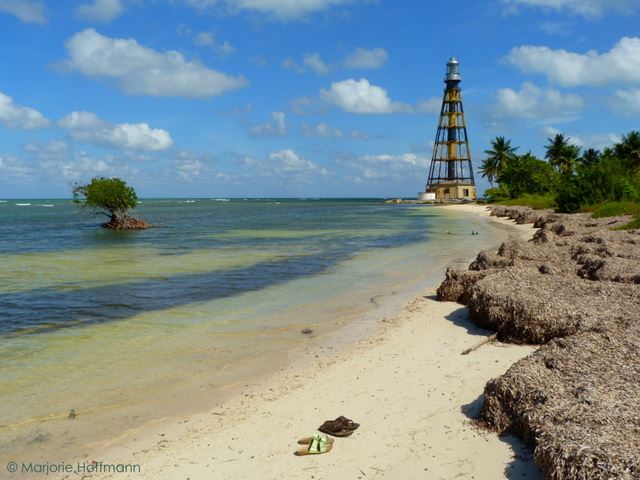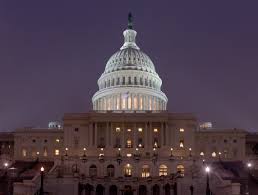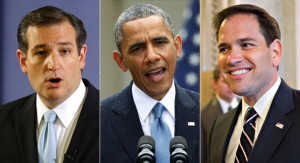On Tuesday, the White House announced its intention to remove Cuba from the U.S. government’s list of nations that sponsor terrorism. This news is in keeping with the Obama administration’s normalization of relations with Cuba—an effort strongly supported by the U.S. business community and a growing number of Cuban-Americans but vigorously opposed by Republicans on the campaign trail.
For the first time perhaps in 50 years, Cuba, after Iran, portends to be a dominant and contentious foreign policy issue in the 2016 presidential campaign. But, unlike the 1960s, two Republican politicians of Cuban ancestry hold center stage in the race. Texas Sen. Ted Cruz is the son of a Cuban exile father. Florida Sen. Marco Rubio, who threw his hat in the ring earlier this week, has Cuban parents who settled in the U.S. before Fidel Castro seized power. Both candidates adamantly oppose normalization on Obama’s terms.
Rubio has condemned President Obama’s Cuba initiative as a “concession to a tyranny.” In taking a hardline stance, Rubio, 43, is out of sync with his generation of Cuban-Americans. A 2014 poll by Florida International University of Cuban-Americans in Miami showed that 78 percent of those aged 33 to 44 favor restoring diplomatic relations and 45 percent are for lifting the embargo. In response to such numbers, Rubio remarked, “I don’t care if the polls say that 99 percent of people believe we should normalize relations in Cuba…This is my position, and I feel passionately about it.”
Ted Cruz echoed Rubio’s denunciation of Obama’s move, saying, “America is, in effect, writing the check that will allow the Castro’s to follow Vladimir Putin’s playbook of repression.”
Rubio has said he would seek to block the appointment of a U.S. ambassador to Cuba and funding for a new embassy. Beyond that, neither he nor Cruz have laid out a plan of action to deal with the White House’s rapprochement with Havana.
Entertaining for a moment a President Cruz or a President Rubio in the Oval Office, what could either realistically do once the genie is out of the bottle, assuming Obama succeeds in restoring full relations, abolishing travel restrictions and ending the embargo? Once relations have normalized, the business community, eager to enter an emerging market close to their shores and long denied them, will fight the return to the former status quo. Big bucks are being mobilized by Big Business in a concerted effort to change politicians’ minds on Cuba policy. And political shifts within Congress are resulting in the removal of old barriers.
Sen. Robert Menendez’s decision to step down as ranking member on the Senate Foreign Relations Committee in the face of corruption charges sidelines a major obstacle to moving ahead with normalization. The 61-year-old Cuban-American Democrat from New Jersey is adamantly opposed to granting concessions to the Castro regime in return for full diplomatic and trade relations. His replacement as ranking member is Maryland Sen. Ben Cardin, a moderate centrist. His spokesman told me, “Senator Cardin believes we should continue to push Cuba on their human rights record but the recent diplomatic changes are positive.”
Cardin has signed on as a co-sponsor to Sen. Jeff Flake’s (R-Ariz.) travel bill, which would end all travel restrictions for Americans who wish to visit Cuba. Committee chairman, Tennessee Republican Bob Corker, has promised to hold “robust hearings” on the president’s Cuba initiative, but has also gone on record declaring the embargo ineffective.
Outside of the political realm, key players in the U.S. business community with an interest in Cuba are coming into alignment toward normalization. The April 1st Cuba Opportunity Summit sold out early, with 100 waitlisted, a clear indication of corporate enthusiasm. At the event, some 250 CEOs and other senior business leaders convened at NASDAQ’s Times Square headquarters to “formulate a strategic roadmap for entry into the [Cuban] market,” according to the conference’s sponsor, the University of Pennsylvania. The Cuban-American CEO of Norwegian Cruise Lines, Frank del Rio, told CNBC, “We’ve got to get past this acrimony about Cuba. It’s time to move on.” He added that a healing process is needed to “bring relations between our two countries back to where they should be.” A follow-up business summit will be held in Havana later this year.
The big roadblock to normal economic relations is the U.S. embargo, in place since the Eisenhower administration. Lifting it requires congressional legislation, which Republicans, who currently control both houses, have so far opposed. But there is movement within corporate circles to change that. A Cuba Opportunity Summit organizer told me that “a lot of those discussions—lobbying Congress—are going on. They [CEOs] are discussing strategies.”
U.S. agribusiness is already pressing for greater access to Cuban markets. In January of this year, over 30 companies and farm trade associations, ranging from the multinational conglomerate Cargill to the Dairy Farmers of America, formed the U.S. Agriculture Coalition for Cuba, dedicated to the immediate end of the trade embargo. Cuba, which imports 80 percent of its food, is a $1.7 billion market for agricultural products. U.S. farm exports to Cuba in 2014 amounted to over $290 million under no-credit, cash-only trade rules allowed by U.S. law. Missouri governor Jay Nixon called the opening up of Cuba “a tremendous opportunity to strengthen our farms and our economy.” Other Republican politicians can be expected to echo this call as heartland farm interests press their case.
Opposition to normalization, however, remains strong among many Cuban-Americans. The three Cuban-American U.S. Senators and four Cuban-American House members are on record opposing President Obama’s normalization initiative. This opposition reaches into the ranks of Cuban-Americans holding elective office at the state level as well. The New Jersey and Florida state legislatures recently passed symbolic resolutions against normalization. Mauricio Claver-Carone, a 39-year old Cuban-American activist who serves on the board of the U.S.-Cuba Democracy PAC, which purports to be the largest Hispanic political action committee, asserted to me that “there is no light between Cuban-American politicians at any level of government” regarding U.S. Cuba policy, irrespective of party affiliation. He criticized those business interests pressing for opening with Havana as driven by “money first, democracy later.”
Claver-Carone cited a Republican-affiliated poll taken in March which showed 54 percent of Cuban-Americans opposing normalization versus 41 percent in support; and 71 percent against lifting sanctions in contrast to 20 percent in favor. But two recent surveys conducted by independent pollster Bendixen & Amandi International painted a different picture. Those surveys found Cuban-American support for normalization surging from 44 percent last December to 51 percent this March. Furthermore, according to Bendixen & Amandi, Cuban-Americans in favor of continuing the U.S. trade embargo dropped from 40 percent to 36 percent and support for easing travel restrictions rose from 47 percent to 56 percent.
The Cuban American National Foundation was a powerful force on Cuba policy in years past, holding great sway on the Hill as well as with mainly Republican presidents. Its founder, the late Jorge Mas Canosa, was considered the principal architect behind a U.S. policy of incrementally tightening the screws on Fidel Castro, culminating in the 1996 Helms-Burton Act, which expanded the embargo’s reach to include foreign-owned companies that traded with Cuba. But the foundation’s hardline position has softened. Its current president, Bay of Pigs invasion veteran and POW Francisco José Hernández, told me, “We welcome opening talks with the Cuban government.” The 600,000 Cubans who have arrived in the United States since 1995, he said, “want to build bridges.” He cited a generational change as underlying the shift toward normalization. CANF, however, supports lifting the embargo only after firm concessions are secured from Havana in the area of human rights.
If the Obama administration were able to end the embargo with Cuba, Republicans like Cruz and Rubio would undoubtedly denounce it. But they might not be able to do much about it. Would a Republican president close our new embassy in Havana and Cuba’s in Washington? Re-impose travel limitations and the trade embargo? Such a scenario is highly unrealistic. The U.S. has backtracked on no similar policy in the past. Add to that the changing views within the Cuban-American community, as well as among other Americans, and the picture that is emerging is one of inevitability.
James Bruno is a writer and former U.S. diplomat. He is author of Havana Queen.
The opinions and characterizations in this article are those of the author, and do not necessarily represent official positions of the United States Government.
CafeFuerte/James Bruno/Politico/InternetPhotos/TheCubanHistory.com
The Cuban History, Hollywood.
Arnoldo Varona, Editor.
CUBA PHOTOS. Cayo Jutia, Pinar del Rio.

CUBA: PRESIDENT DE EEUU CRUZ OR PRESIDENT RUBIO?.OPINIÓN.
Imaginando por un momento a un Presidente Cruz o a un Presidente Rubio en la Oficina Oval de los EEUU, ¿qué podrían hacer, de manera realista, una vez que el genio ha salido de la botella, suponiendo que Obama tenga éxito en la restauración de relaciones plenas, la abolición de las restricciones de viaje y el fin del embargo? Una vez que las relaciones se hayan normalizado, la comunidad empresarial, deseosa de entrar en un mercado emergente muy cerca de sus costas, algo que se le negó por largo tiempo, peleará por impedir el retorno del antiguo status quo. Dinerales están siendo movilizados a través de las grandes empresas en un esfuerzo concertado para cambiar la mentalidad de los congresistas respecto a la política hacia Cuba. Y los giros políticos en el Congreso se traducirán en la eliminación de las viejas barreras.
La decisión del senador Robert Menéndez de dimitir como miembro de mayor rango en el Comité de Relaciones Exteriores del Senado en medio de acusaciones de corrupción, despeja un gran obstáculo para avanzar en la normalización. El político cubanoamericano de 61 años, demócrata por Nueva Jersey, se opone firmemente a otorgar concesiones al régimen de Castro a cambio de relaciones diplomáticas y comerciales plenas. Su reemplazo como miembro de mayor rango es el senador por Maryland, Ben Cardin, un centrista moderado. Su portavoz me dijo: “El senador Cardin cree que debemos seguir presionando a Cuba en su historial de derechos humanos, pero los recientes cambios diplomáticos son positivos”.
Cardin ha firmado como copatrocinador de la propuesta legislativa del senador Jeff Flake (R-Arizona) sobre los viajes a Cuba, la cual pondría fin a todas las restricciones para los estadounidenses que deseen visitar Cuba. El presidente del Comité de Relaciones Exteriores, el republicano Bob Corker, de Tennessee, ha prometido celebrar “audiencias robustas” sobre la iniciativa de Cuba del presidente, pero también ha dejado constancia declarando que considera ineficaz el embargo.
Alineados con la normalización
Fuera del ámbito político, los actores clave de la comunidad empresarial de Estados Unidos con interés en Cuba están comenzando a alinearse hacia la normalización. El 1ro de abril, la Cumbre de Oportunidadades en Cuba vendió sus espacios en tiempo récord, con 100 candidatos en lista de espera, en clara indicación de entusiasmo empresarial. En el evento, cerca de 250 ejecutivos y otros líderes empresariales se reunieron en la sede de NASDAQ en Times Square con el propósito de “formular un plan estratégico para la entrada en el mercado [de Cuba]“, de acuerdo con el patrocinador de la conferencia, la Universidad de Pennsylvania. El directivo cubanoamericano de Norwegian Cruise Lines, Frank del Río, dijo a CNBC: “Tenemos que superar esta acritud sobre Cuba. Es hora de seguir adelante”. Agregó que es necesario un proceso de curación para “llevar nuevamente las relaciones entre nuestros dos países adonde deben estar”. Una cumbre de negocios de seguimiento se realizará en La Habana a finales de este año.
El gran obstáculo para establecer relaciones económicas normales es el embargo de Estados Unidos, en vigor desde los días de la administración Eisenhower. Levantarlo requiere la legislación del Congreso, donde los republicanos, que actualmente controlan ambas cámaras, se oponen a ello. Pero hay un movimiento interno en los círculos empresariales para cambiar ese comportamiento. Un organizador de la Cumbre de Oportunidades en Cuba me dijo que “muchas de esas discusiones -por vía de cabildeo en el Congreso- están ocurriendo. Ellos [los CEOs] están discutiendo estrategias”.
La agroindustria estadounidense ya está presionando por un mayor acceso a los mercados cubanos. En enero de este año, más de 30 empresas y asociaciones comerciales agrícolas, que van desde el conglomerado multinacional Cargill a los Dairy Farmers of America, formaron la Coalición Agrícola EEUU-Cuba, dedicada a gestionar el cese inmediato del embargo comercial. Cuba, que importa el 80 por ciento de sus alimentos, es un mercado de $1.7 billones de dólares para los productos agrícolas. Las exportaciones agrícolas de Estados Unidos a Cuba en el 2014 ascendieron a más de $290 millones, sin ningún tipo de crédito, bajo reglas comerciales estricta que solo admiten pagos en efectivo, según la ley estadounidense. El gobernador de Missouri, Jay Nixon, llamó a la apertura de Cuba “una gran oportunidad para fortalecer nuestras granjas y nuestra economía”. Puede esperarse que otros políticos republicanos se hagan eco de esta convocatoria en tanto los poderosos intereses agrícolas presionen en su caso.
Comprometidos con la oposición
La oposición a la normalización, sin embargo, sigue siendo fuerte entre muchos cubanoamericanos. Los tres senadores cubanoamericanos y cuatro miembros cubanoamericanos de la Cámara de Representantes tienen un abultado expediente de oposición a las iniciativas de normalización del presidente Obama. Esta oposición llega a las filas de los cubanomericanos que ocupan cargos electivos a nivel estatal. Las legislaturas de los estados de Nueva Jersey y Florida aprobaron recientemente resoluciones simbólicas contra la normalización. Mauricio Claver-Carone, un activista cubanoamericano de 39 años que trabaja como consejero del Cuba Democracy PAC, que pretende ser el mayor comité de acción política entre los hispanos, me aseguró que “no hay brechas entre los políticos cubanoamericanos a cualquier nivel de gobierno” con respecto a la política de Estados Unidos hacia Cuba, con independencia de su filiación política. Criticó a los intereses empresariales que presionan por la apertura con La Habana como fuerzas impulsadas por la máxima de “el dinero primero, la democracia después”.
..Si la administración Obama es capaz de terminar con el embargo a Cuba, los republicanos como Cruz y Rubio, indudablemente, lo denunciarían. Pero podrían no ser capaces de hacer mucho al respecto. ¿Podría un presidente republicano cerrar nuestra nueva embajada en La Habana y la de Cuba en Washington? ¿Volverían a imponerse limitaciones de viaje y el embargo comercial? Este escenario es muy poco realista. Estados Unidos no ha dado marcha atrás en ninguna política similar en el pasado. Agreguemos las opiniones cambiantes entre la comunidad cubanoamericana, así como entre otros estadounidenses, y la imagen que está emergiendo es una de inevitabilidad.
James Bruno es escritor y ex diplomático estadounidense. Autor de Havana Queen.
Las opiniones y caracterizaciones en este artículo son las del autor y no representan necesariamente la posición oficial del Gobierno de Estados Unidos.
CafeFuerte/James Bruno/Politico/Extractos/InternetPhotos/TheCubanHistory.com
The Cuban History, Hollywood.
Arnoldo Varona, Editor.



 CUBA: U.S. President Cruz or President Rubio? .Opinion.** CUBA: Presidente de EEUU Cruz or President Rubio? .Opinión.
CUBA: U.S. President Cruz or President Rubio? .Opinion.** CUBA: Presidente de EEUU Cruz or President Rubio? .Opinión.

